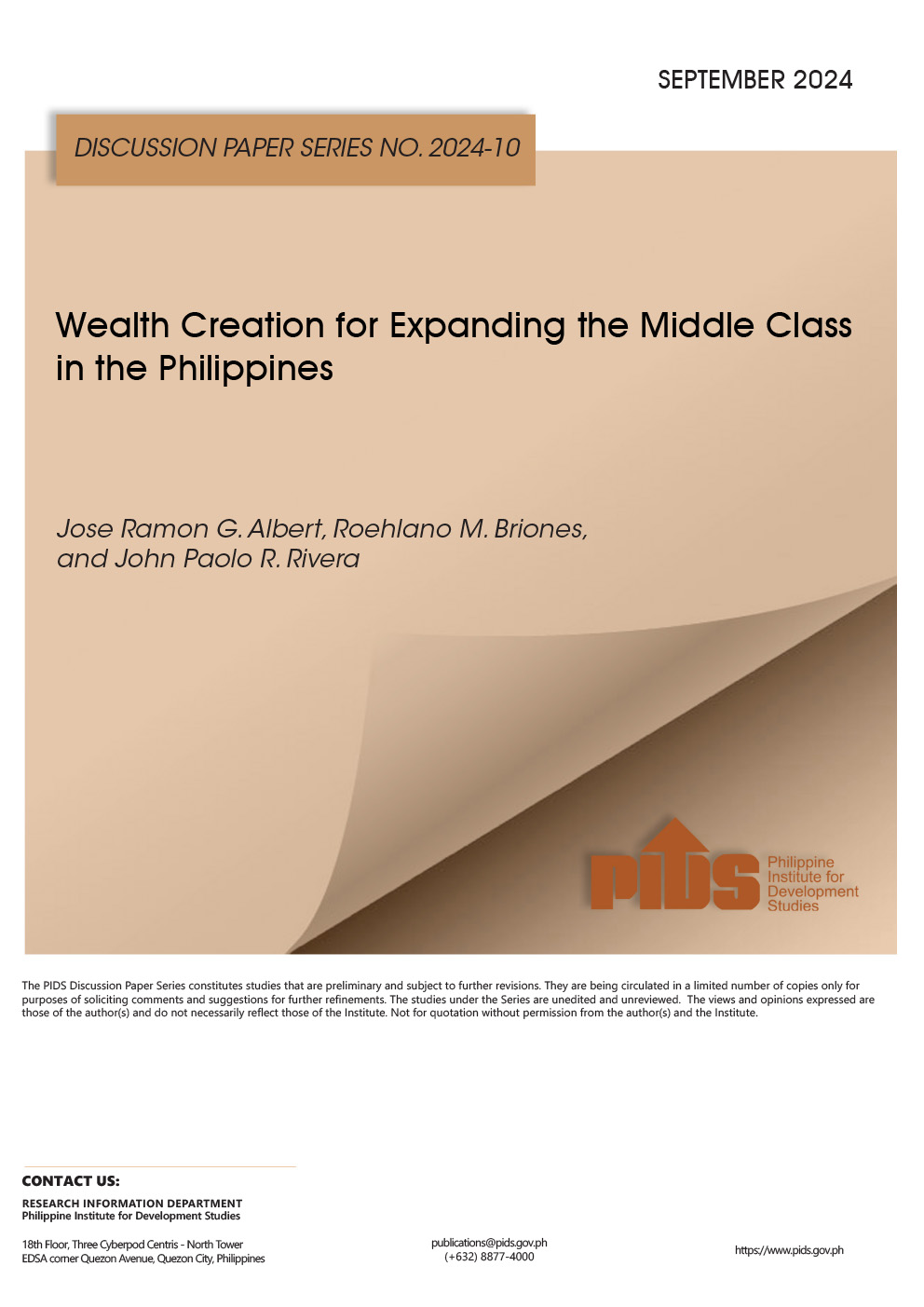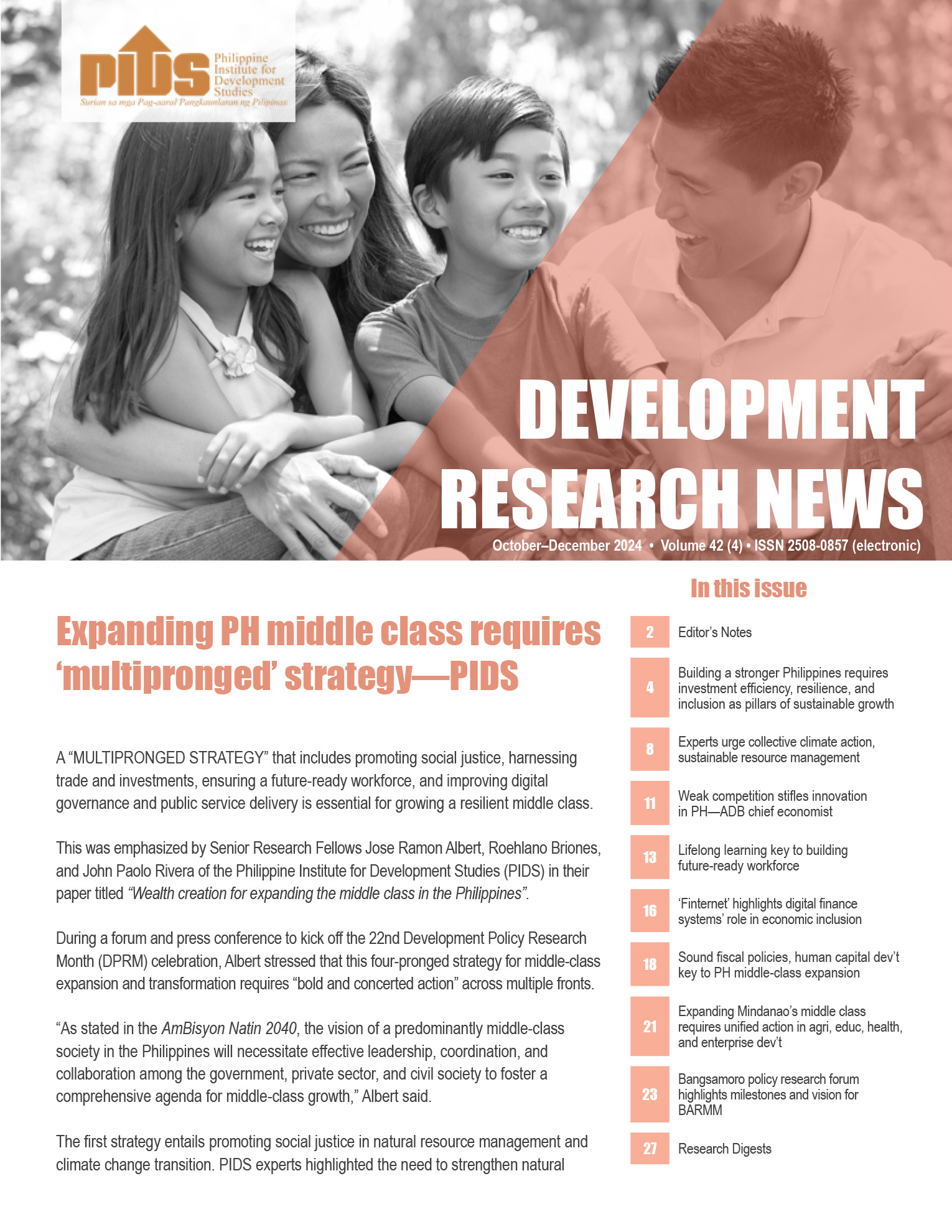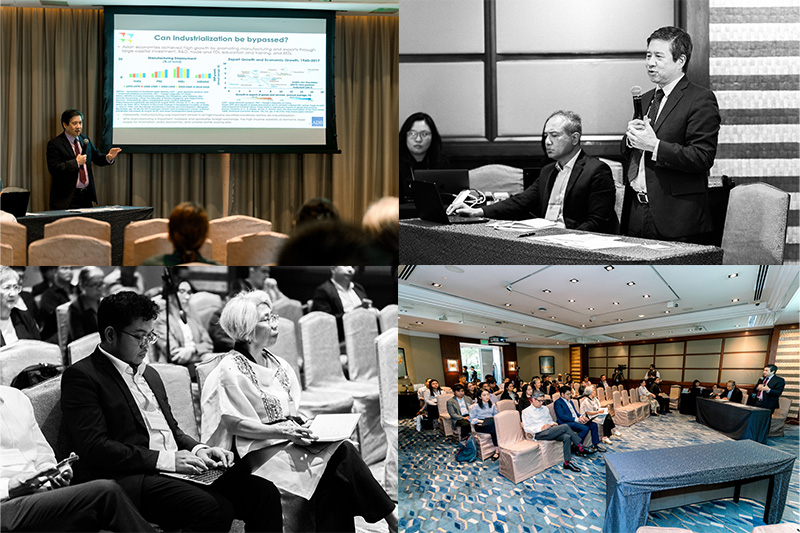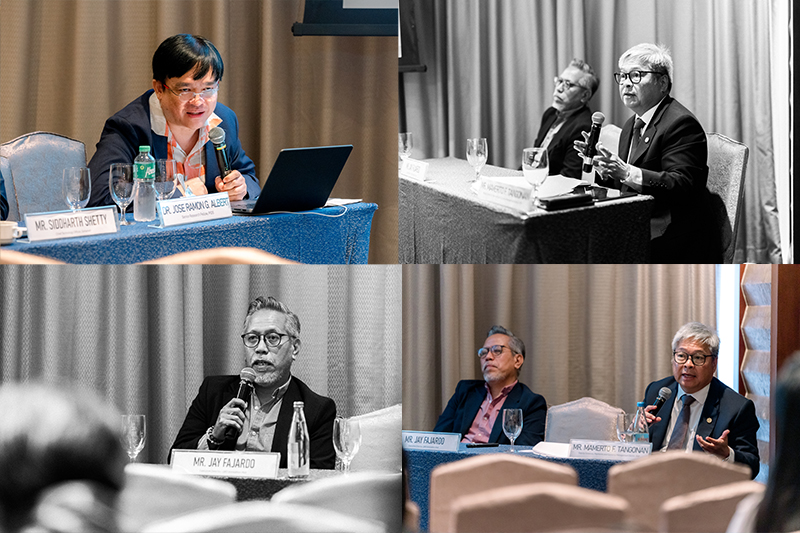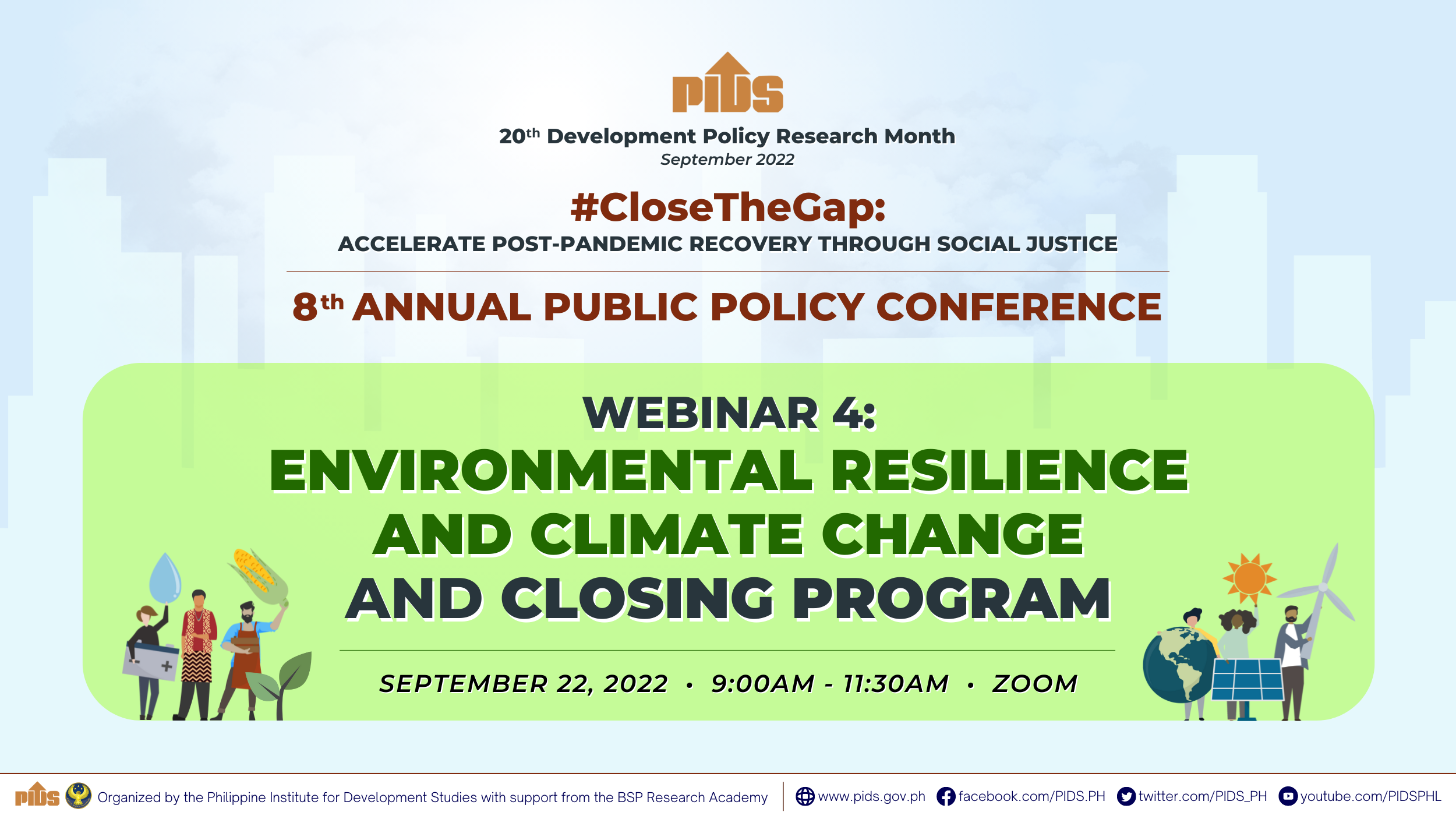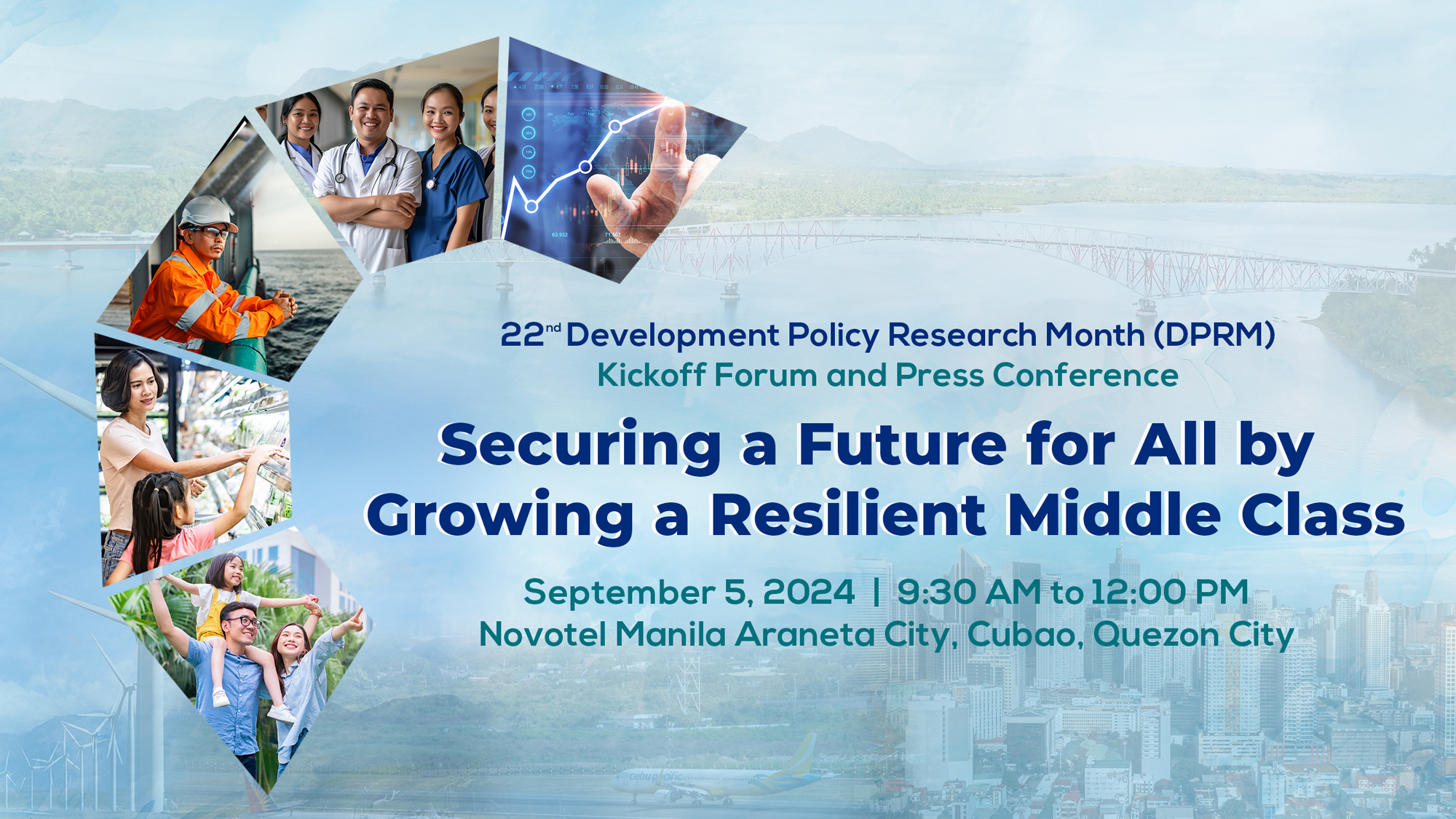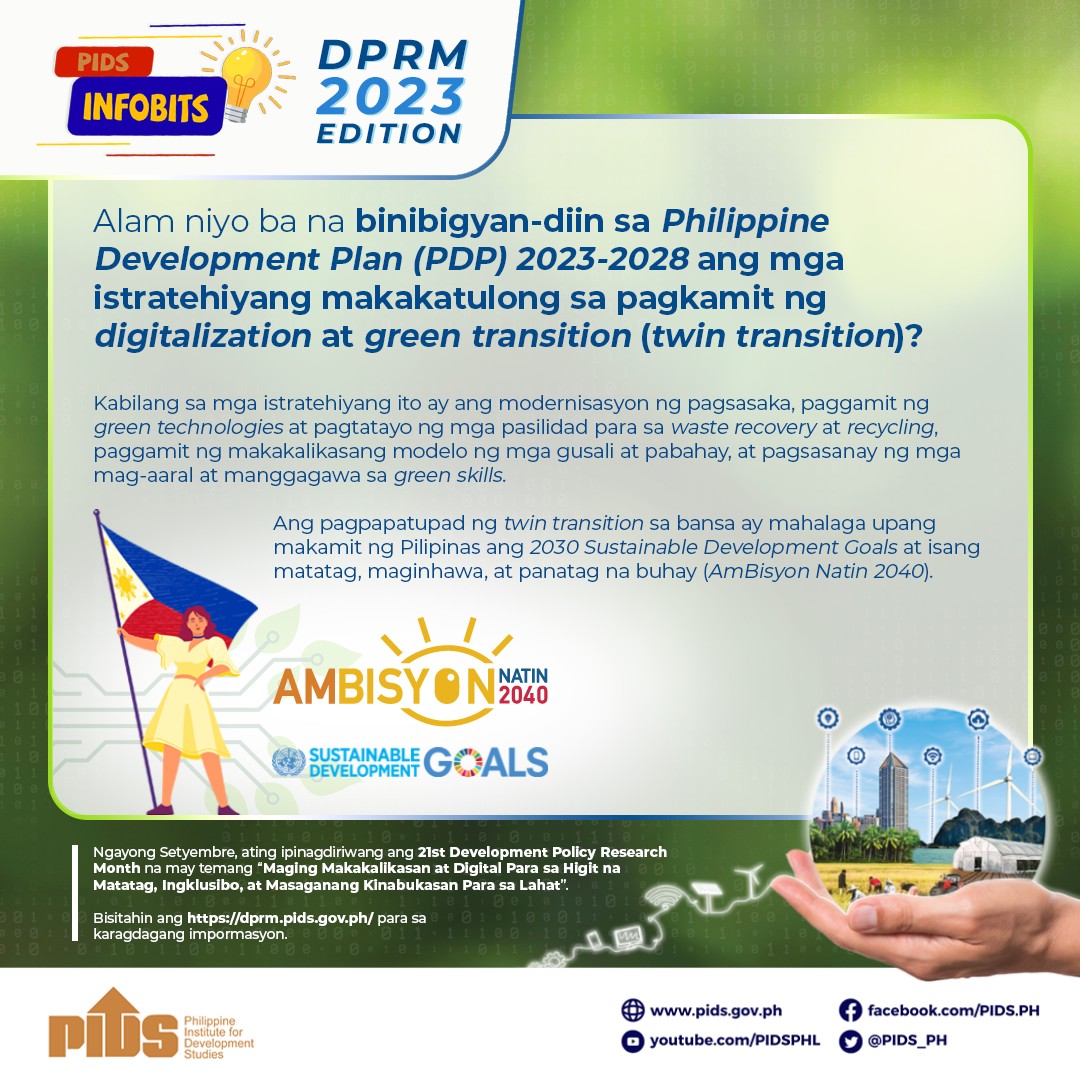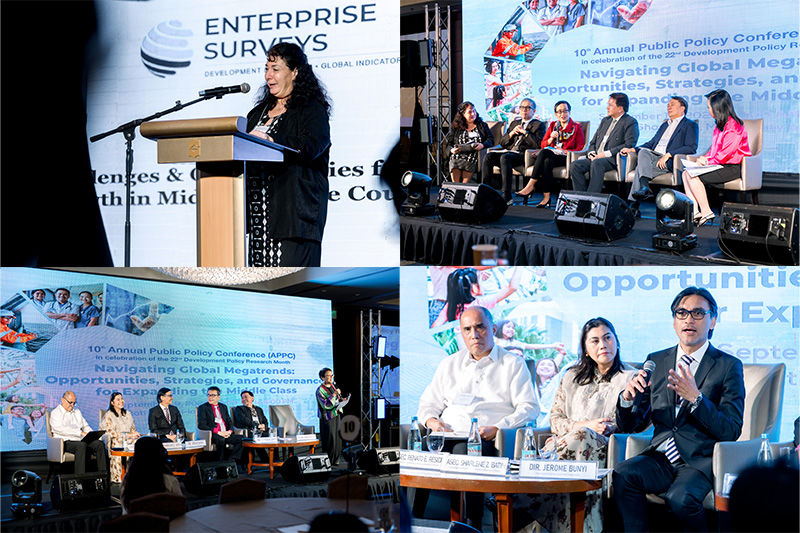
The Philippine Institute for Development Studies (PIDS) marked a significant milestone with the conduct of the 10th Annual Public Policy Conference (APPC), held at Makati Shangri-La. Themed “Navigating Global Megatrends: Opportunities, Strategies, and Governance for Expanding the Middle Class”, the whole-day affair was attended by distinguished foreign and local scholars, government officials, and experts from international organizations and the private sector.
In his opening remarks, PIDS President Dr. Aniceto Orbeta Jr. reflected on a decade of fostering evidence-based policymaking through the APPC, crediting the conference with shaping national discourse on crucial issues. Highlighting this year’s theme, Orbeta emphasized the importance of supporting the Filipino middle class, noting that while this group plays a vital role in economic resilience, they are also vulnerable to disruptions caused by rapid global changes. “Policymakers and other decision makers in government bear the responsibility of providing adequate structural support to the Filipino middle class so that they can effectively face challenges and seize opportunities,” he said.
The economic potential of the middle class was also underscored by Secretary Arsenio Balisacan of the National Economics and Development Authority in his keynote address. Balisacan highlighted the middle class as a central force in the Philippine Development Plan (PDP) 2023-2028. He indicated that their higher quality of life translates to greater engagement in societal issues, making them a driving force in nation-building. “In line with the PDP priorities, we must harness the middle class strengths, particularly their capacity to adapt and capitalize on global megatrends,” said Balisacan.
The opening plenary session featured World Bank Lead Economist Dr. Maria Vagliasindi as the main presenter, delivering a global perspective on the strategies middle-income economies can adopt to thrive amid uncertainty. Drawing insights from the World Bank’s “World Development Report 2024: The Middle Income Trap”, Vagliasindi emphasized that effective development policies for the middle class must be responsive to global conditions and trends. She highlighted that while the global economy faces multiple downside risks, there are also opportunities for growth in middle-income countries. She introduced the “3i strategy” — investment, investment and infusion, and investment, infusion, and innovation—designed to help middle-income economies align the adoption of global technology with local development goals.
Vagliasindi advocates for a transformative approach to economic growth that emphasizes collaboration between new and established firms, prioritizes value creation over mere size, and promotes inclusivity and social mobility for marginalized groups in the workforce. “Ultimately, you want to favor who is adding value. We would like to move from size distribution of firms to value added creation, from values of inequality to indicators of social mobility, to make sure that the minority, including women, are allowed and given equal opportunity to find jobs,” she concluded.
Following Vagliasindi’s insightful presentation, a panel discussion featured Dr. Cielito Habito, Chairman and Founding Partner of BrainTrust Inc.; Dr. Renee Ruivivar, Managing Director of the Bank of Singapore; Mr. Mark Joaquin Ruiz, President of Hapinoy; and Mr. Roberto Batungbacal, Executive Director of Makati Business Club (MBC). Each panelist offered insights on how the global trends discussed by Vagliasindi could be localized within the Philippine context.
Habito made the observation that amid the global economic slowdown, the Philippines is doing better than most because of higher government investment on technology and human capital, matched with growth in exports, especially in services. Three main imperatives were suggested to allow the middle class to sustain this growth: improving the efficiency of public investments, reforming education to boost human capital, and enhancing resilience by supporting key sectors like agriculture and improving access to financing for micro, small, and medium enterprises (MSMEs). Batungbacal delved deeper into the infusion of technology, echoing themes from Vagliasindi’s presentation. Ruiz shared insights on how microenterprise owners grow their businesses by addressing barriers such as access to capital, technology enablement, and capacity building. Ruivivar encouraged the discussants and the audience to ponder what other strengths the country has, and how best to enhance them with technology to uplift both people and the economy.
The APPC concluded with breakout sessions delivering core messages on how to achieve growth and inclusivity through natural resource management and climate action, digitalization across various sectors, education and skills development for a future-ready workforce, and enhanced access to information and public participation in development.
Watch the recording of the whole-day APPC here: https://bit.ly/appc2024_. ###


